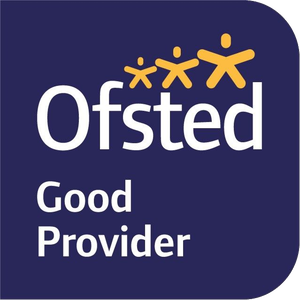Music
Subject/Curriculum Leader: Ms V. Briggs/ Mrs G McDonald
Music is a really important and fun part of Norton’s curriculum. The emphasis is on learning through practical experiences whether it is through world music using the Samba kit and Djembes, to ukuleles, clarinets and flutes, to the Mac suite for Music Technology. The diverse curriculum encompasses them all.
The learning builds on skills developed at Key stage 2 and focuses on listening, performing, and composing activities whilst developing knowledge key words. The activities include individual work, pair work and group work thus building teamwork skills as well as developing individual confidence.
There are opportunities to take individual instrument lessons with our visiting peripatetic teaching staff offering a range of instruments.
The Music department run extracurricular clubs at lunchtimes which lead to performance opportunities at our public concerts throughout the school year and these are stunningly well attended. The department is also involved in the annual school show which is produced by the Expressive Arts Department.
The Music block is a well-resourced, well used, and modern facility which includes a spacious classroom with music technology facilities, two practise rooms, a live sound room and a recording studio.
“Music is the universal language of mankind.”
Henry Wadsworth Longfellow.
Key Stage 3
Statement
In Key Stage 3 students enjoy two hours of Music a fortnight. The curriculum is designed to allow progression in listening, performing, and composing skills. Listening activities take place every lesson.
The curriculum is sequenced to enable good progress and the development of musical skills through exciting projects, which build independence, confidence, respect, and collaboration skills.
Year 7 Autumn term.
Project 1-The elements of Music and Families of Instruments
Performing
Project 2-The Voice
This project has the expectation that year 7 will perform in the Christmas concert
Year 7 Spring Term.
Project 3-World Music -India
Performing and Composing
Project 4-National Anthems
Performing and Composing
Year 7 Summer Term.
Project 5-Uke and Sing
Performing
Project 6-Music Technology
Composing from a brief-Adverts
Year 8 Autumn Term.
Project 1-World Music- Samba
Project 2-Music Technology
Composing from a brief- Film Music
Using GarageBand software
Year 8 Spring Term.
Project 3-Music that Tells a Story-composing
Graphic scores
Project 4-Music Technology-Notate
Using ‘Sibelius’ software-composing and arranging
Year 8 Summer Term.
Project 5-Class Band-Performing
One class per half term throughout the year as each student will be supplied with an instrument
Project 6- Sea Shanties and Work songs
Performing and composing
Year 9 Autumn Term.
Project 1- Music Technology-Remixing
Using GarageBand software-composing and arranging
Project 2- Uke can Sing-performing skills
Year 9 Spring Term.
Project 3- Composing from a Brief-based on Classics
GarageBand and Sibelius
Project 4-World Music-Africa
Performing and composing
Year 9 Summer Term
Project 5-Performance Skills and Djing
Project 6-The Blues
Performing and composing
Key Stage 4
Statement:
The new BTEC Tech Award level 1 / 2 in Music Practice will run from September 2022. The course involves developing technical skills through vocational contexts by exploring and developing musical skills and techniques, and by responding to a music industry brief. It is an exciting course which develops skills gained in Key Stage 3 in performing, composing and music production.
Year 10- Autumn term
Component 1: Exploring Music products and styles:
Learning Aim A: Demonstrate an understanding of styles of music
Learning Aim B: Apply understanding of the use of techniques to create music
Year 10-Spring Term
Component 1: Exploring Music products and styles:
Learning Aim A: Demonstrate an understanding of styles of music
Learning Aim B: Apply understanding of the use of techniques to create music
Component 2: Music Skills Development
Learning Aim A: Demonstrate professional and commercial skills for the music industry
Year 10-Summer Term
Component 2: Music Skills Development
Learning Aim B: Apply development processes for music skills and techniques
Year 11-Autumn Term
Component 2: Music Skills Development
Learning Aim B: Apply development processes for music skills and techniques
Component 3: Responding to a Commercial Brief
Assessment Objective 1: Understand how to respond to a music brief
Assessment Objective 2: Select and apply musical skills in response to a music brief
Year 11 -Spring Term
Component 3: Responding to a Commercial Brief
Assessment Objective 2: Select and apply musical skills in response to a music brief
Assessment Objective 3: Present a final musical product in response to a music brief
Assessment Objective 4: Comment on the creative process and outcome in response to a music brief
Component 3: Responding to a Commercial Brief-Synoptic set task activities 1 and 2
Year 11 -Summer Term
Component 3: Responding to a Commercial Brief-Synoptic set task activities 2 and 3
Key Stage 5
The Key Stage 5 course is BTEC Level 3 National Extended Certificate in Music Performance, and it is the equivalent of an ‘A’ level totalling 360 Guided Learning Hours.
The course comprises of three mandatory units and one optional unit. The mandatory units are Practical Theory of Music and Harmony, Professional Practice in the Music Industry, and Ensemble Music Performance. The final unit is an option from one of the following: composing Music, Music Performance Session Styles, Solo Performance, and Improvising Music.
Year 12-Autumn term
Theory of Music and Harmony
Ensemble Music Performance
Year 12 - Spring term
Ensemble Music Performance
Theory of Music
Year 12 - Summer term
Solo performance (option)
Professional practice in the Music industry
Year 13 - Autumn term
Professional practice in the music industry
Solo performance
Ensemble Music performance
Year 13 - Spring term
Ensemble Music performance
Professional practice in the music industry
Year 13 - Summer term
Ensemble Music performance
Professional practice in the music industry









